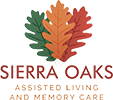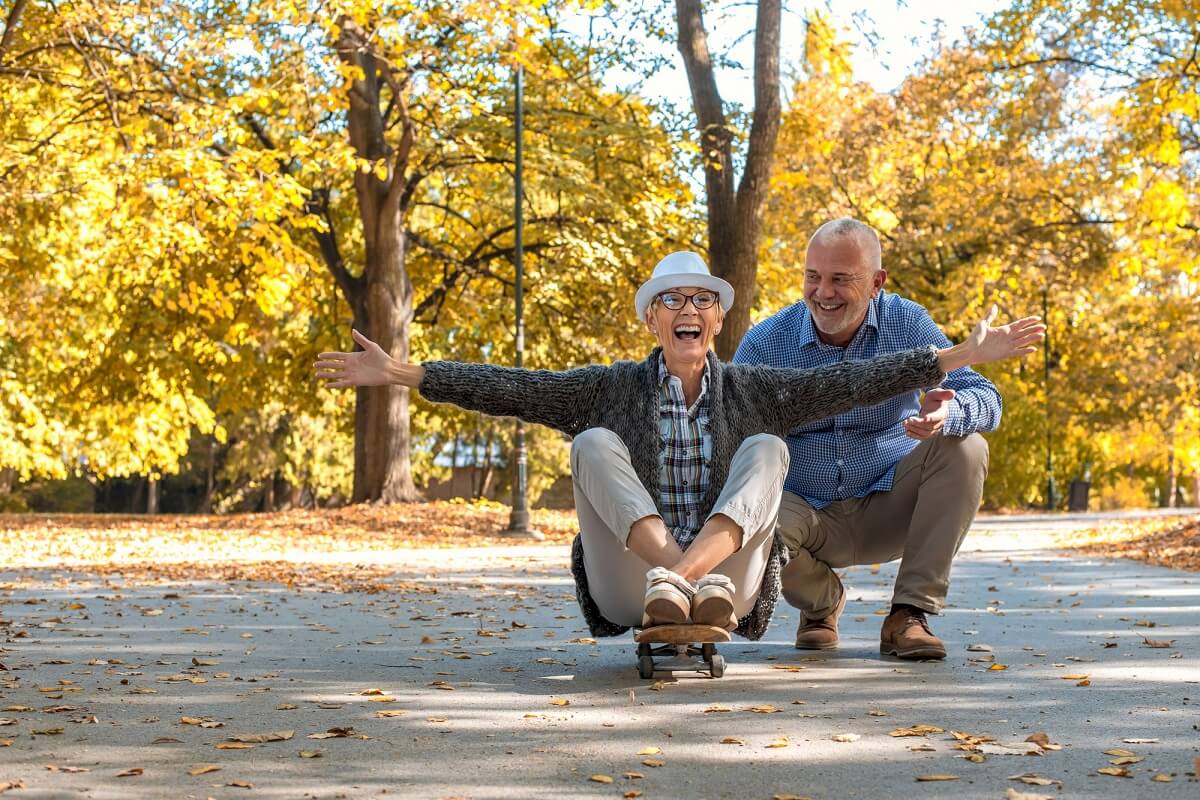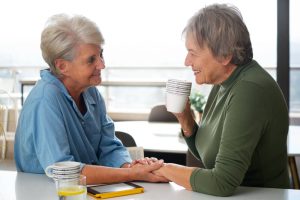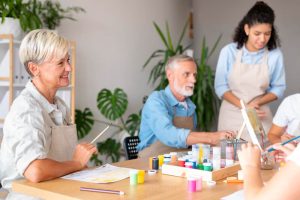It is not always the food that improves your immune system; socialization can also do wonders!
We all, somewhere or the other, deal with loneliness. Whether relocating to a new space or the death of a loved one, any sudden life transition can leave us feeling isolated. But when we reach our 60s, this loneliness increases as social connections start to deplete. This may negatively affect our physical, mental, and emotional health.
The best to get rid of this sulking feeling is socializing and some changes in lifestyle to fight dementia. Read this blog to find the multiple health perks of socialization in our late 50s or 60s!
What is Socialization?
Socialization is connecting with people, forming connections, and participating in social activities.
Socialization is vital for the health and general well-being of elderly people since it is more than simply a means to pass the time. According to studies, people 65 and above who socialize outside of their immediate family & friends tend to remain more active.
Let’s delve into the specific benefits socialization can offer to seniors.
Enhances Mental Health
Regular social interaction has a major impact on mental health among the elderly. Studies have shown that adults above the age of 65 who do not interact much are at risk of suffering from mental health issues. Engaging in conversations, sharing experiences, and participating in group activities can help battle feelings of loneliness and isolation. It provides a sense of belonging, vital for maintaining a positive outlook on life.
Restores Cognitive Function
Socializing with others can restore cognitive function in the elderly. Engaging in intellectually stimulating conversations, playing games, and solving puzzles with others can help keep the brain active. This can reduce the risk of cognitive degeneration and improve overall mental abilities.
Boosts Emotional Well-being
Interacting with others regularly can significantly boost seniors’ emotional well-being. Socialization provides an outlet for expressing feelings, receiving emotional support, and developing meaningful connections. It promotes a sense of happiness, contentment, and fulfillment.
Reduces the Risk of Depression and Anxiety
The risk of growing depression and anxiety is higher among elderly individuals who lack social connections. Socialization is the best way to reduce loneliness, depression, and anxiety. By engaging in social activities, seniors can experience a greater sense of purpose and a reduced risk of mental health disorders. You can also opt for medical practices like Reminiscence Therapy to help a loved one with Dementia.
Boost Physical Health
Engaging in social activities often involves physical movement and exercise, which can positively impact physical health in the elderly. Participating in group exercises, dancing, or simply strolling with friends can increase mobility, improve cardiovascular health, and enhance overall physical well-being.
Enhances Overall Quality of Life
Socialization plays a crucial role in enhancing seniors’ overall quality of life. It provides opportunities for laughter, joy, and shared experiences. Maintaining social connections can contribute to fulfillment and life satisfaction, making each day more meaningful and enjoyable.
Fosters a Sense of Belonging and Purpose
Feeling connected to others and having a sense of belonging is essential for older people. Socialization offers a chance to build relationships, establish friendships, and create a support network. It fosters a sense of belonging and purpose, leading to greater self-worth and satisfaction.
Supports Independence and Autonomy
Through socialization, older people can maintain their independence and autonomy. Social activities allow them to choose, pursue their interests, and control their lives. This can contribute to a positive self-image and higher overall independence.
Provides Opportunities for Learning and Growth
Socialization presents numerous opportunities for learning and personal growth. Interacting with others exposes seniors to different perspectives, ideas, and experiences. This exchange of knowledge and wisdom can broaden their horizons, challenge their thinking, and promote continuous learning throughout their lives.
Strengthens Social Skills
Regular socialization helps the elderly maintain and improve their social skills. It provides opportunities to practice communication, active listening, empathy, and conflict resolution. These skills are essential for building and maintaining meaningful relationships and navigating social interactions effectively.
Improves Communication and Language Abilities
Engaging in conversations and discussions with others can improve communication and language abilities in the elderly. It helps maintain verbal fluency, enhances vocabulary, and strengthens cognitive processes related to language. This can lead to improved self-expression and more effective communication with others.
Reduces the Risk of Age-Related Diseases
Plenty of studies have pointed out the benefits of socializing among the elderly. By maintaining an active social life, the elderly have a better chance of fighting cardiovascular diseases and other chronic conditions. That’s right, socialization contributes to overall better health outcomes and increased longevity.
Enhances Longevity
Socialization has been linked to increased longevity among the elderly. Strong social relations and a supportive network of friends can positively influence health outcomes and extend lifespan. Seniors can live longer, healthier, and more fulfilling lives by prioritizing social interactions.
Conclusion
Socialization has more power than you think!
It has the potential to reshape your vision of life. While it is essential for the health and well-being of all people, it is especially important for the elderly. Social interaction can help to reduce loneliness, depression, and anxiety. It can also help to improve cognitive function, physical health, and overall quality of life.
Sound good to you? If you are concerned about the social isolation of an elderly loved one, connect with us to get involved in the community that aims to build a better place for older adults!





